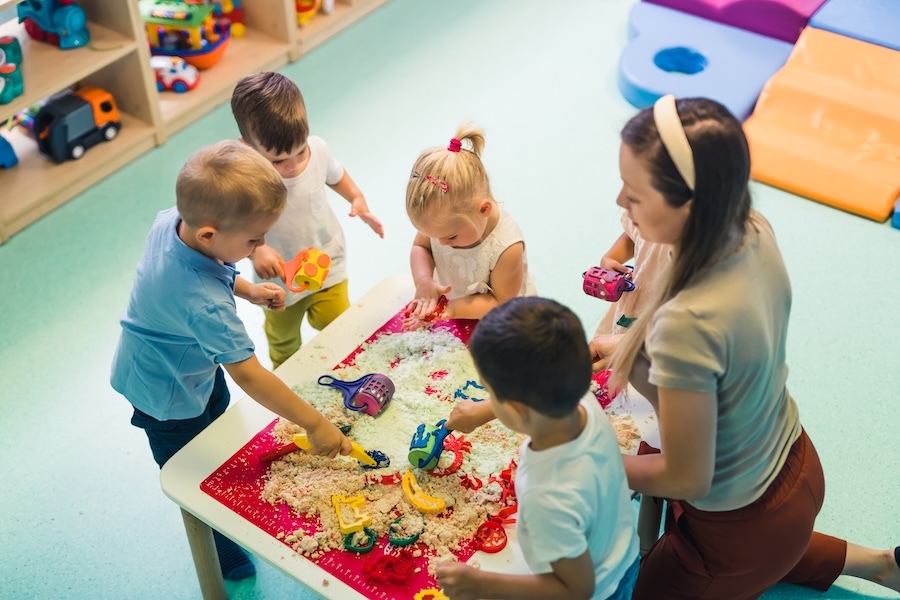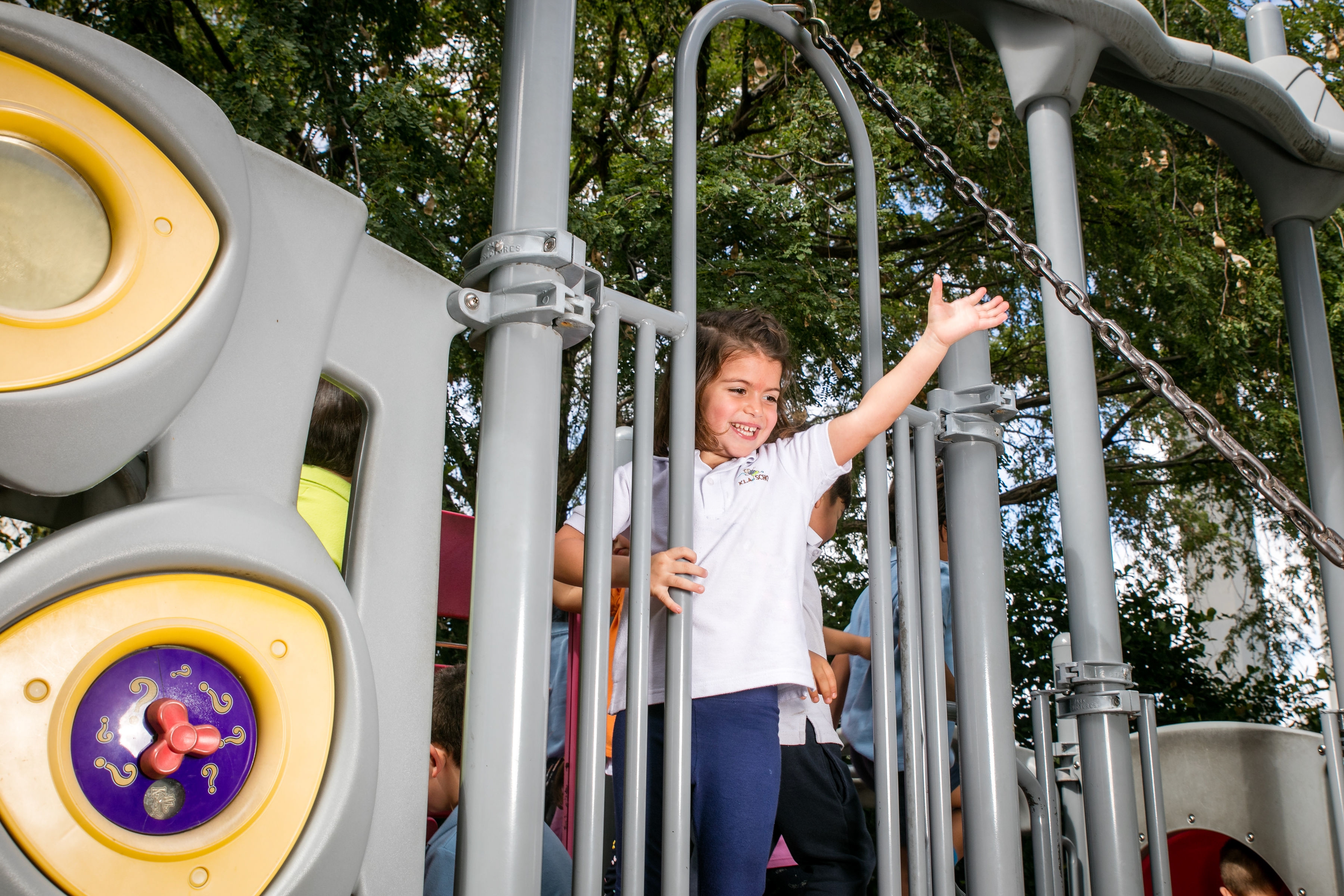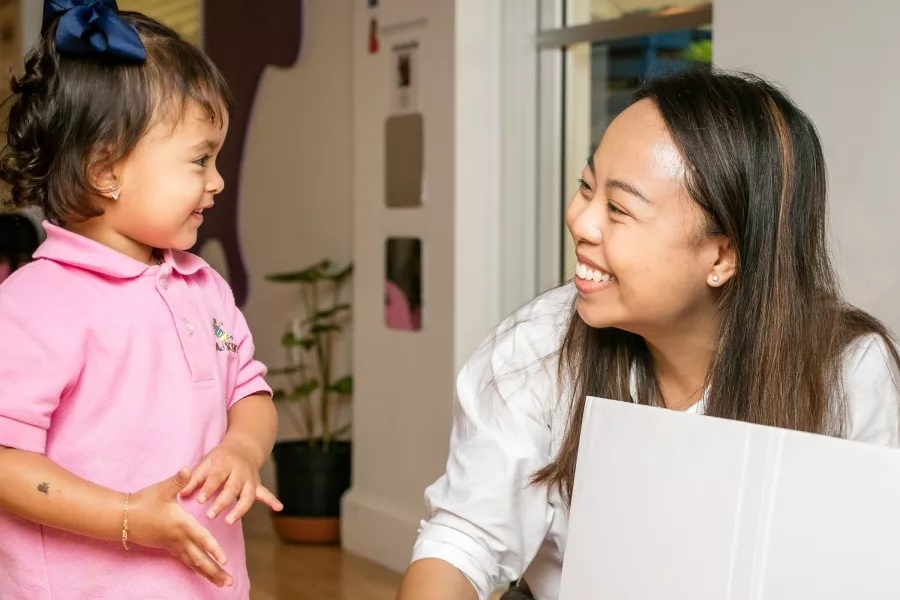Choosing a Preschool in Coral Gables: A Parent's Guide
Topics: Child Development
Age Range: Preschool
Choosing a preschool in Coral Gables is a significant milestone for any parent and involves careful consideration. With so many factors to weigh, it’s easy to feel overwhelmed. However, there are key tips and important questions to help guide your decision and ensure you find the right fit for your child. What should you look for when choosing a preschool? What are the most important questions to ask?
Here are some essential tips to make the process smoother and help you select a preschool that aligns with your child’s needs and your family’s priorities.
Choosing a Preschool in Coral Gables: Essential Tips for Parents
Selecting the right preschool for your child can be time-consuming, so it’s important to approach it with patience and preparation. Before making the decision, it's helpful to understand the benefits of preschool. This knowledge can serve as a foundation for helping you choose the best option for your child’s development and needs.
Fostering Growth: The Benefits of Preschool for Children
- Preschool prepares children for kindergarten—and beyond. Preschool is just the beginning of a well-rounded early childhood education that includes academic skills such as writing, reading, math, and science, as well as social and emotional skills. These skills together can help preschoolers transition into kindergarten easier and build a strong educational foundation for later education.
- Preschool helps children build social skills. For many parents, sending their child to preschool is a priority even if one parent can care for them at home, and the social aspect is one aspect of this. In preschool, children get to socialize with other kids from a variety of backgrounds. Social skills like cooperation, communication, empathy, sharing, conflict resolution, and emotional regulation are all built in a preschool environment.
- Preschool gives children an opportunity to develop their interests. Meeting children at their developmental level and encouraging their interests provides a strong foundation for lifelong learning. At KLA Schools, we know that giving experiences based on a child’s interests means they’re more likely to enjoy their time at school and more likely to learn the academic, social and emotional skills they need for life.
- Preschool provides valuable structure. Children benefit from structure. Predictability in daily routines and schedules gives them a strong sense of security and stability. The structure of preschool is flexible and child-led, and it’s an age-appropriate way to ease them into a regular routine that will have benefits for their focus, independence, learning, and stress reduction.
- Preschool offers behavioral benefits. A recent study by Guthrie Gray-Lobe, Parag A. Pathak, and Christopher R. Walters found that children who attended preschool were less likely to receive suspensions in later schooling, and less likely to exhibit rule-breaking behavior in their teenage years.
- Preschool develops fine and gross motor skills. Activities like running, jumping, balancing, drawing, painting, and cutting are just some of the ways your child builds their gross and fine motor skills. Preschool is an ideal place for these fun activities under the supervision of a trained early childhood educator.
- Preschool makes learning fun. Learning in fun ways and in relaxed environments helps children develop positive feelings to education. This will have benefits in later education as well as in their adult life.
The First Step: How Do You Know if Your Child is Ready for Preschool?
The question of when to transition their toddler into preschool is one that many parents struggle with. Here are some questions to help determine if your child might be ready for preschool.
- Are they the right age? Most children start preschool between the ages of 3 to 5, though this may vary by school.
- Is your child potty trained? Many preschools require that children are potty trained, but this may vary as well.
- Can they follow simple directions? Some examples of simple directions include picking up their toys, handing you something that you ask for, or putting on their socks when requested to.
- Can your child communicate with others? While toddler language milestones vary by child, it can be helpful if your child is able to communicate in simple ways—for example, responding to questions or expressing when they want something such as a drink or toy.
- Is your child reasonably independent? Toddlers are just beginning to experiment with independence. However, being able to do simple things like play on their own for several minutes, choose their own book, or feed themselves can be signs of preschool readiness. In addition, the ability to be away from parents without major emotional distress is a bonus for preschool.
- Can your child concentrate for several minutes? Distraction is part of life with young children, but if your child can follow directions most of the time and concentrate for several minutes, it will help them thrive in preschool.
While this list of preschool readiness factors isn’t exhaustive, you can help your child get ready for preschool by developing skills like these.

How to Choose a Good Preschool in Coral Gables
Coral Gables is a wonderful area to raise a family in. It has a lower overall crime rate than the national average, and offers many historical features, activities, and shopping in a peaceful environment. For families who love experiencing nature together, the Fairchild Tropical Botanic Garden is a popular option as well as the many parks for family-friendly fun. Coral Gables also offers excellent educational options, including great preschools.
Whether your family is relocating to Coral Gables or simply looking for the best educational start for your toddler, here are some tips for choosing a preschool.
Things to Consider When Choosing a Preschool in Coral Gables
Here are some factors to consider when you’re selecting a preschool for your child. Whichever factors you determine to be the most important are up to you, but they’re each part of the holistic picture. Add these items to your checklist to help you figure out how to choose a good preschool.
- Preschool location. For many families, the ease of the daily drop-off and pick-up is a very important factor. Not only does this make your routine easier, but it also allows you to be relatively nearby if an emergency arises.
- Safety and security. A good Coral Gables preschool will ensure that your child is safe and accounted for at all times and will have a facility that only approved people can enter. It’ll also communicate with you and allow you to check on your child at any time.
- Preschool curriculum and philosophy. When looking for the best preschool in Coral Gables, it can feel that there are many educational philosophies offered. For example, the Reggio Emilia educational approach at KLA Schools believes that a child has the right to direct their own learning. Reggio Emilia is child-centered education, where teachers, parents, and the community are collaborators in a child’s educational journey. Look for a preschool curriculum that aligns with your family’s values and educational goals.
- The training of the preschool educators. Look for teachers that are trained in early childhood education and know how to provide educational activities for a variety of ages. Good preschool educators will specialize in cognitive, emotional, and social development and tailor learning to each child’s needs. They’ll also document your child’s learning experience and partner with you for a fully supportive education.
- The ratio of educators to children. Lower ratios mean your child gets more attention; responsiveness that will make your child feel valued, respected, and heard; and small group experiences that let teachers nurture your child’s interests.
- The overall environment of the classrooms. Do the teachers at your child’s prospective preschool speak to children using their name and a compassionate tone? Do they get down to their eye level? Do they listen patiently and ask open-ended questions? Do they work with children to solve problems? Do they enjoy playing together? These can all be signs of a secure, positive preschool environment in which your child can thrive.
Key Questions to Consider When Selecting a Preschool
There are many factors that go into selecting a preschool in Coral Gables. Some things are essential in any preschool: educated and compassionate educators, clean and safe facilities and equipment, and a child care license. Beyond that, here are 30 questions to ask when choosing a preschool.
- What is the staff-to-child ratio?
- Do your educators encourage independent learning and investigation?
- How long are the children outside each day?
- What is a typical day like?
- Can you accommodate special diets or allergies?
- Can I see a sample weekly menu?
- What is your policy regarding illnesses?
- What is your process for giving medication?
- How do you assess a child’s progress?
- How will you keep me updated about my child’s progress?
- Are your toys and other play equipment age-appropriate?
- How often are the toys and equipment cleaned and evaluated for safety?
- How do you accommodate differing cultural practices?
- How do you accommodate children with special needs?
- Why are your offered activities chosen?
- Are naps taken on a schedule, or when the child needs one?
- How do you handle conflicts between children?
- What are your policies about discipline?
- Can I drop in at any time to see my child?
- How can I be involved in activities or decisions?
- How do you monitor the children and the facility?
- How do you monitor or screen visitors?
- What are your emergency procedures?
- Will the same caregivers be with my child each day?
- What are your policies about field trips?
- Do you provide opportunities for learning about music, dance, or art?
- How do you teach early math skills?
- How do you integrate STEAM concepts into your curriculum?
- How do you help to develop literacy skills?
- Do you have before and after school programs?
These 30 questions are not the only ones to ask your prospective preschool, but they offer a good foundation for figuring out your wants and needs. You may want to rank these questions in your own order depending on their importance to your family.
Why Visiting a Preschool in Person Is Essential
Visiting a potential preschool in person is crucial in the decision-making process. You won’t be able to assess many aspects unless you fully experience the environment firsthand. For instance, a tour allows you to inspect the safety of toys and facilities and get a clear sense of how your child will spend their day. It also offers the invaluable opportunity to meet potential educators face-to-face, allowing you to gauge their teaching style, values, and educational approach. Remember, your child’s preschool educators will be key partners in their development, and a welcoming preschool community will be eager to engage with you as a parent.
Choosing the right preschool in Coral Gables involves careful consideration of many factors. These essential tips can help you make the best choice for your child’s early education and growth.
If you’re ready to explore a nurturing, supportive environment for your child, we invite you to visit our Coral Gables Preschool. Schedule a tour today and see how we can partner with you in your child’s early development.

